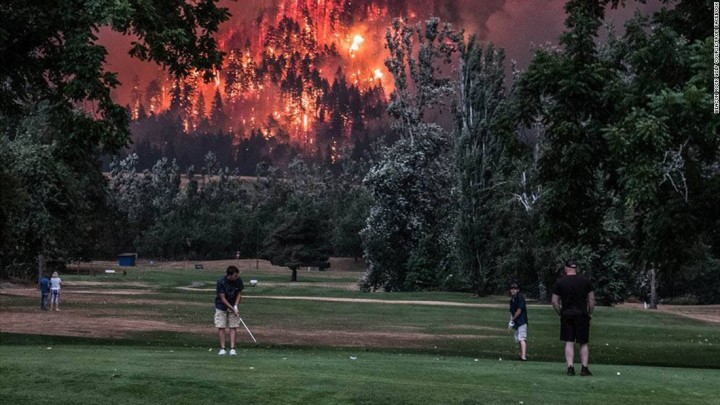
The Long Game: Facing Reality in the Environmental Century
 Golfing while the mountains burn. Photo from Beacon Rock Golf Course.
Golfing while the mountains burn. Photo from Beacon Rock Golf Course.
Personally, I would rate the likelihood of staying under two degrees of warming as under 10 percent. – Michael Oppenheimer 2017
Do not depend on the hope of results. You may have to face the fact that your work will be apparently worthless and even achieve no result at all, if not perhaps results opposite to what you expect. As you get used to this idea, you start more and more to concentrate not on the results, but on the value, the rightness, the truth of the work itself. – Thomas Merton
Under a concrete sky on 5 November 2014, Michele and I awoke to realize that Paul LePage had been re-elected as governor of Maine. Once again, Mainers had split their votes three ways and LePage was elected by a minority of the voters to another four-year term. We were deeply disappointed because during his first term LePage had made clear his disdain for environmental concerns. Little did we know that the next few years would make LePage’s first term look like the good old days. Continue reading “The Long Game: Facing Reality in the Environmental Century”
You must be logged in to post a comment.